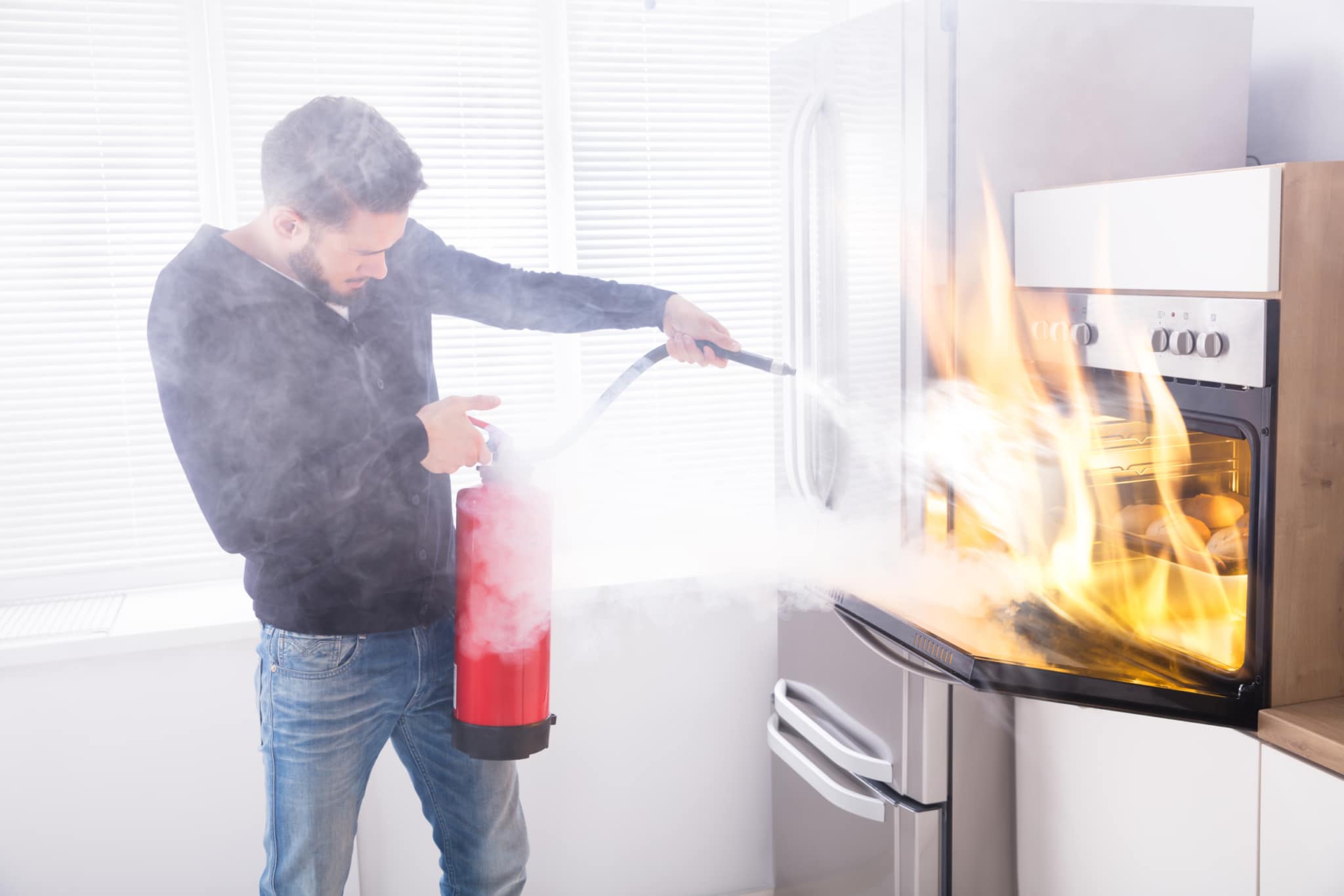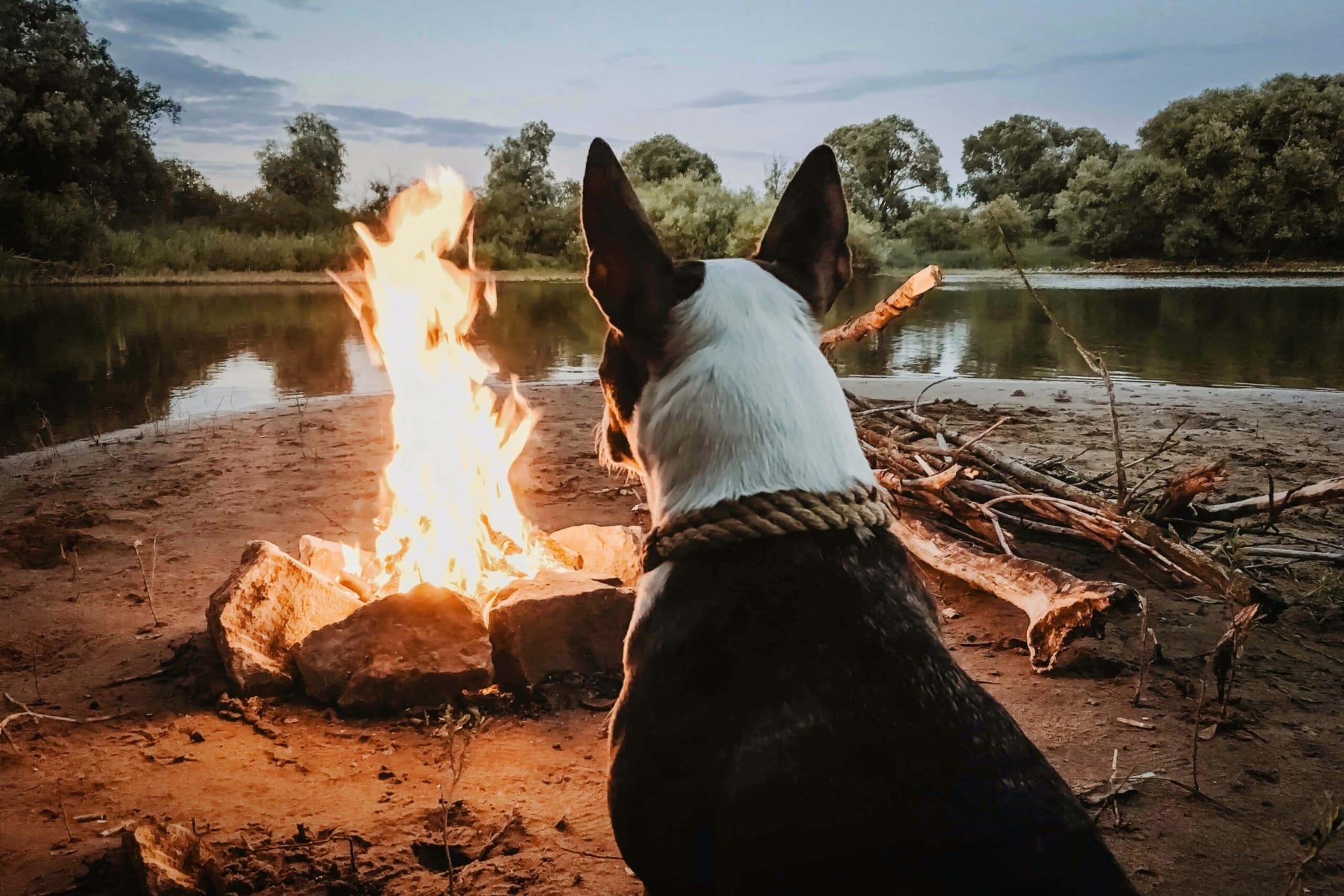Fire Prevention: How to Prevent a House Fire?

House fires are among some of life’s most frightening and unexpected occurrences—whether it is an isolated kitchen accident or a whole house up in flames.
Fire prevention is part of being a responsible homeowner and can be implemented in a few easy steps. Read on for 20 of the best tips for preventing a house fire by making some small changes around your home.
Create Safe & Sound Strategies
Hope for the best, plan for the worst—it’s a good idea to have a solid strategy for dealing with a house fire, should it occur. Talk it through with your family and ensure everyone understands what to do during a house fire. This includes:
- Basic fire first aid
- Establishing a fire evacuation meeting point
- Having a fire escape plan
- Knowing alternate fire escape routes from the home
- Memorizing emergency numbers
Teach Children About Fire Safety
It’s a good idea to teach your kids about fire safety early on. They should grow up with a healthy understanding and respect for fire and not see it as a plaything. Educating your children on proper fire prevention and management will be infinitely safer.
Purchase Fire Extinguishers
Because fire extinguishers are one of the best lines of defense against the possibility of a blaze, make sure there is a functional one in each room that could be a fire hazard.
This includes common rooms like kitchens and dining rooms, laundry rooms, garages, and any space with a lot of electrical outlets in use or heating appliances. Make sure everyone in the house knows how to use an extinguisher properly.
Check Your Smoke Alarms
Always keep your smoke alarms in working order to amplify fire prevention and safety. Make sure to test them regularly by pressing the little test button on the front and making sure the alarm still rings, and replace the batteries at least once per year.
If you find any malfunctions in your smoke alarms’ response, replace the entire unit immediately.
Clean Dryer Ducts & Filters
Keeping your dryer and duct system clean is essential to preventing fire in the home. Remove the lint from your dryer’s filter for every load, and vacuum out the ducts at least twice a year. Consider changing the outside filter once a year, as well.
Never Leave Flames Unattended
Whether a candle or fireplace, never leave open flames alone. Fire has a nasty habit of sparking and expanding, so leaving it unattended even for a few seconds can be disastrous. Always keep an eye on open flames and be ready to douse them at a moment’s notice.
Check Electrical Systems
It’s a good idea to keep an eye on your home’s electrical wiring. Look for signs of degradation, wear, and tear, or damage to the wires from critters and pests. If parts of your electrical system appear to be compromised, call an electrician in for help.
Get The Furnace Checked
Schedule regular maintenance for your furnace and give yourself some peace of mind when it comes to your central heating. Getting the furnace serviced by a professional will ensure no fire hazards exist and prevent issues before they even show up.
Get a Home Inspection
A home inspection is beneficial for older homes that run the risk of hiding faulty or outdated wiring, but it can benefit a house of any age. If you experience tripped circuit breakers and blown fuses frequently, schedule a house inspection ASAP.
Know Where the Breakers Are
Should an electrical fire break out, it’s important to immediately shut off power to the home. Because of this, you should know precisely where the main breakers and fuse panels are. Plus, each switch needs to be precisely labeled to avoid confusion.
Be Aware of Any Cords
Keep an eye on all cords within your home, especially if they are in a high-traffic area or you have pets. Frayed, faulty, or chewed wires are dangerous, so immediately replace any worn or damaged cords.
Try not to run cords underneath rugs or furniture to avoid overheating and malfunction, and don’t overload power bars or sockets. Additionally, if a socket or extension cord feels hot to the touch or appears discolored, turn off power to the area and replace it.
Cut Down on Clutter
Should a fire occur, it will spread a lot slower if there is less clutter in the home to feed it. This is a great excuse to sit down and go through things that might have been piling up in a spare room or closet.
Transfer your paperwork to digital formats and move any important documents or certificates into a fire-resistant safe for security. Cut back on unworn clothes, unused toys, or unread books and ask yourself: do you really need this item?
Make Your House Non-Smoking
Eliminate one of the leading causes of house fires by implementing a non-smoking rule for your entire house. Not only will this reduce the risk of a fire breaking out, but the space will also smell better.
If smoking outside, ensure there are ashtrays for suitable disposal and that all smoking is done at a safe distance from the house. Never throw a cigarette into the trash without extinguishing it completely, as it can continue to burn long afterward.
Use Surge Protectors
Most extension cords you can buy today have surge protector capacities, which are very important for protecting your house from fire.
Because surges can cause electrical fires, all devices that are plugged in are at risk. Surge protectors help eliminate that hazard by not allowing the excess energy to travel into your electrical devices.
Keep Your Stovetop Clean
Clean your stovetop and oven regularly to avoid a buildup of grease or other cooking debris that can cause a fire.
Try instituting a weekly scrub of the stove burners to remove any food particles clinging on. Some good old-fashioned elbow grease is useful for the oven, but you can also invest in a spray-on oven cleaner to help remove the stubborn residue.
Take Care When Cooking
Kitchens are key to fire prevention with various fire hazards, such as appliances, wiring, and plenty of flammable oils and materials.
Always exercise caution when cooking. Wear short-sleeved, close-fitted shirts to avoid snagging a handle or a cuff getting too close to the stove. Keep children away from active kitchens, and don’t cook when drinking or sleep-deprived.
Additionally, you should never leave the kitchen when food is cooking, either in the oven or on the stove. All it takes is one second for a fire to start! If you must leave the room, turn off all the kitchen appliances in use before stepping away.
Be Cautious With Backyard Barbeques
Grilling outside may be overlooked when establishing fire prevention in your home. But it’s just as important to keep your backyard area safe from sparks!
Make sure your grill, barbeque, or fire pit is positioned at a safe distance from the house itself, at least five feet. It should also be away from other structures and garden installations, including trees, fences, porch overhangs, and railings.
Clean off the cooking surface regularly with soap and water and a steel brush to keep the grease down and prevent large flames during use. Additionally, inspect the gas lines and connectors for signs of corrosion or rust and replace them immediately if visible.
Remove Debris
It is essential to protect the outside of your house from the risk of fire, too. This can be done by removing debris from the gutters, foundation, and garden to eliminate fire fodder, including leaves, tree branches, and other flammable materials.
Additionally, you should not stack firewood against your foundation or walls. Should it catch on fire, it will immediately spread to the house’s structure and be detrimental. Instead, build a dedicated shed for firewood well away from the main house.



